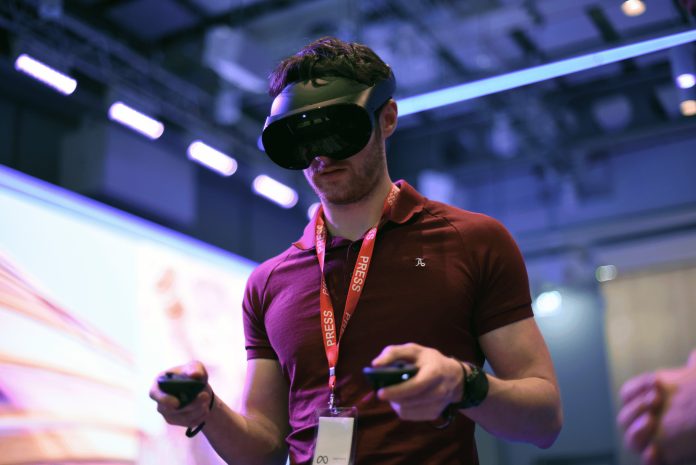It was reported by the Korea Economic Daily, citing an anonymous source, that Meta CEO Mark Zuckerberg will meet with LG Electronics’ CEO on Thursday to finalize the final details of the partnership agreement between the two corporations. If this is true, it would be Zuckerberg’s first visit to Korea in 10 years, the most recent one in 2014, also to complete a partnership to build a Gear VR case, turning smartphones into virtual reality displays.
Six months ago, another Korean newspaper, Maeil Business Newspaper, that Meta had a partnership agreement with LG to manufacture components for future premium Quest Pro glasses, with its first product, Quest Pro 2, expected to be priced at around $2,000.
This is not the first time Meta has partnered with a consumer electronics manufacturer to develop and engineer VR glasses as well as XR. Gear VR is manufactured by Samsung. Xiaomi manufactures the cheap Oculus Go glasses, and the Ocolus Rift S is developed jointly with Lenovo, and then the company produces it for Meta.
Meanwhile, Samsung has announced official information, saying that they will produce augmented reality glass hardware, Google will take over software development, expected to launch in late 2024.
The new Korea Economic Daily reports that while Meta will be responsible for the development of software for business-oriented glasses and high-end users, LG’s webOS will also be present on the glasses. It is unclear how webOS will operate on virtual reality glasses at the moment, but it can be predicted that, in terms of entertainment, LG’s smart TV operating system can turn Quest Pro 2 into an enhanced reality TV, with many of the apps that are already available on this OS: Apple TV+, Netflix, Disney+, Max, Prime Video, Hulu, etc. WebOS entertainment apps running on Quest Pro 2 Glass will be a huge advantage, as app developers don’t have to spend time porting their apps to a new platform.
Currently, Meta’s Quest glasses also have only one movie viewing app that supports Netflix, whose maximum resolution when streaming movies and series also stops at 480p, does not support downloading, passthrough from computer devices, or hand-motion control.
At the same time, Quest 2 is likely to support a very potential project, called Codec Avatars, with the ambition to change the way users’ virtual avatars are present in augmented reality environments. If the user’s virtual avatar used to look like an animated nucleus, then Meta can now create real-person-like avatars, process them in real time by configuring the chip inside the glasses, and take advantage of finger-motion tracking sensors.
The Apple Vision Pro has a similar solution, called Personas, but the face image is not very real, and is only displayed in 2D window cells.


